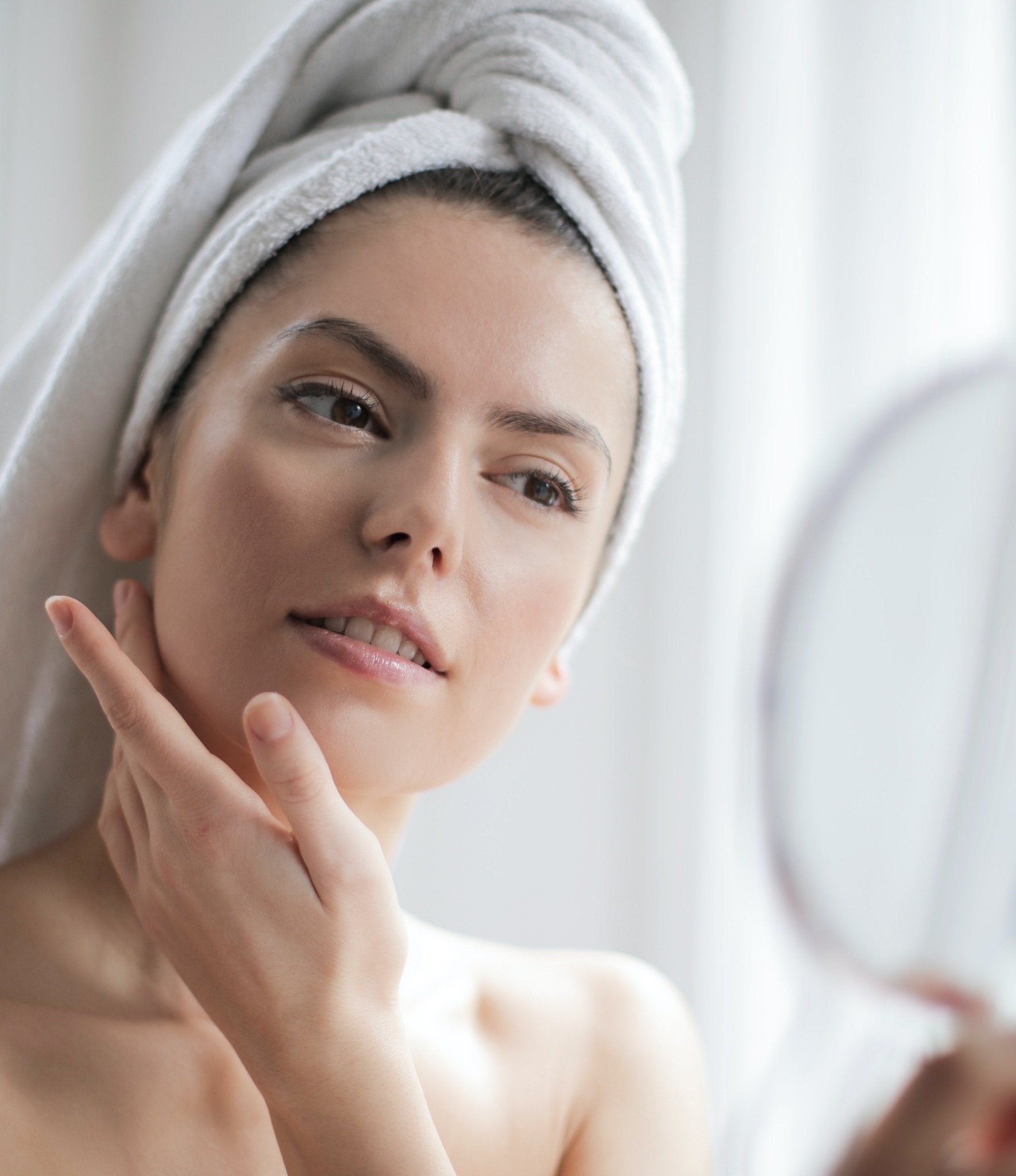
Tips for Healthy Skin
This time of year is brutal on the skin. Winter brings cold weather, less sunshine and dry air. Unless you are proactive during these months, your skin health is going to suffer. No one wants unhealthy skin, so we put together a list of tips to help you fight against the season and give your skin the care it deserves.
1. Food
Everybody knows that what you choose to put in your body has an outsized effect on your health. However, you may not have stopped to think about all the foods you should eat to improve the quality of your skin. Start with fatty fish, like salmon, herring and mackerel. Fatty fish are rich in omega-3 fatty acids, which are important for warding off the immune diseases that target the skin, such as psoriasis. Other foods with high quantities of omega-3s include walnuts and avocados. These also contain Vitamin E, which helps tackle inflammation and dryness.
Don’t forget to eat your vegetables. For example, yellow bell peppers are full of Vitamin C, which helps your body produce collagen. Broccoli contains sulforaphane, a compound that also contributes to keeping collagen levels up. Both broccoli and yellow bell peppers, as well as sweet potatoes, are good sources of beta-carotene, which acts as a natural antioxidant. Once you finish your dinner, have some dark chocolate for dessert; high-quality dark chocolate is itself rich in antioxidants.
2. Sleep
Get eight hours of sleep each night. The positive effects of even the most fastidious skincare regimen will be nullified by insufficient sleep. The human need for sleep is partially due to the body’s natural imbalance of pH levels at the end of the day. If you do not let your skin repair this daily wear and tear, the imbalance will manifest itself as moisture, inflammation, redness and breakouts. By not giving your body the appropriate eight hours, you will hamstring its recovery efforts and throttle the regeneration process.
Sleep is also important for the regulation of hormones. It is the period during which your body produces the most collagen, which dispels acne and keeps your skin fresh. On the flipside, sleeping at least eight hours a night limits the production of cortisol, also known as the stress hormone. Fighting your body’s desire to sleep at night is a surefire way to make your cortisol levels skyrocket, leaving you with a puffy and sullen appearance.
3. Drink water
Despite what Hollywood actresses may say, it is not a secret that drinking more water leads to healthier skin. Hydration gets your blood flowing and flushes toxins out of your system. This improves skin elasticity, giving your skin a more natural and even ageless appearance. Drinking water also assists in immune health, so it can help you avoid eczema and acne. The recommended amount of water intake varies depending on who you ask, but at the bare minimum you should be drinking at least two liters a day.
4. Take vitamins
Don’t rely solely on your diet to access the vitamins that play a role in skincare. The best vitamins in this regard are Vitamin D, Vitamin C, Vitamin E and Vitamin K. Vitamin D fights skin inflammation and can be used to treat psoriasis. Vitamin C decreases cell damage and curbs signs of aging. Vitamin E is an antioxidant that also prevents dryness. Vitamin K aids the process of blood clotting; it can help you get rid of dark spots and bags around your eyes. You can take these vitamins orally or apply them via topical creams.
5. Wash your face
Our last tip is to wash your face frequently. As long as you do not have naturally oily skin and are not prone to acne, you can wash your face as many as three times a day. Just make sure that you are using a mild cleanser. Most importantly, wash your face right before you go to bed: Clear out all of the various environmental elements that accumulated throughout the day and let your body get to work as soon as you fall asleep.



Leave a comment
This site is protected by hCaptcha and the hCaptcha Privacy Policy and Terms of Service apply.